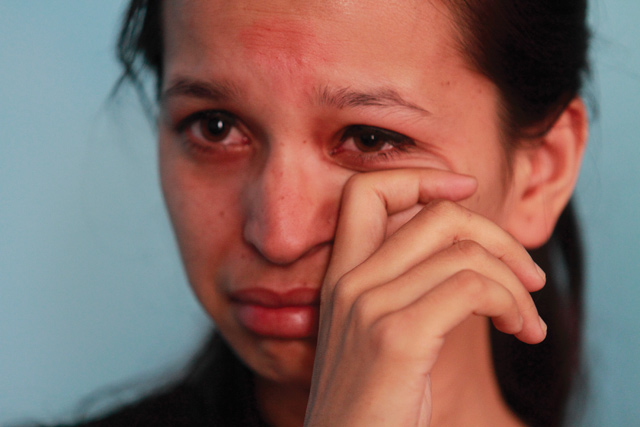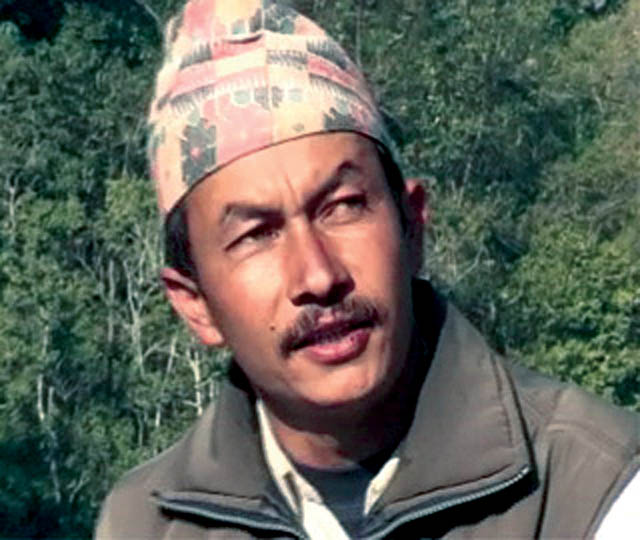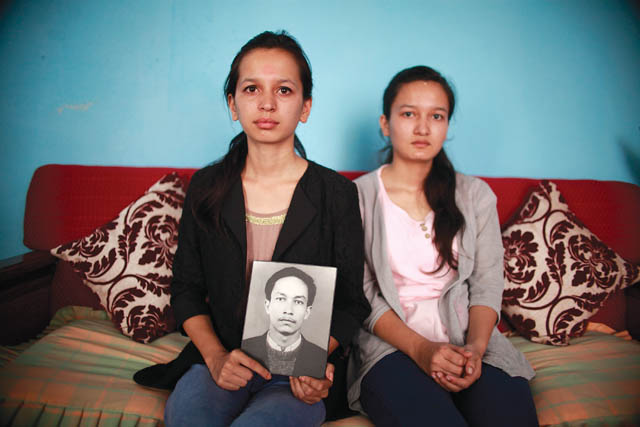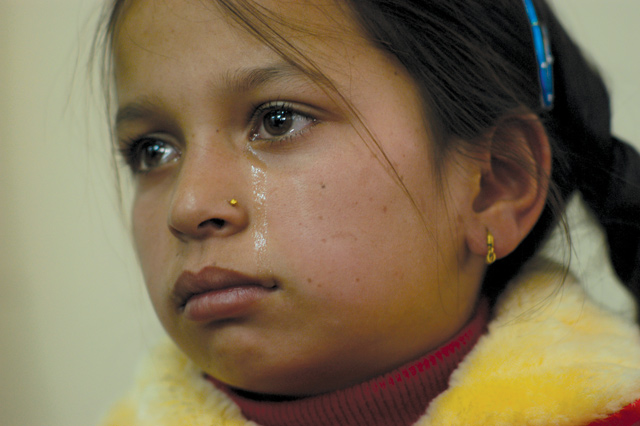Nutan Thapa still cannot hold back her tears when she remembers her father
In 2005, when Laxmi Thapa told a press conference at the Reporters’ Club in Kathmandu how her Dailekh-based journalist husband Dekendra had been seized by the Maoists, camera flashes went off as reporters took pictures of her.
Photojournalist Bikas Rauniyar was among them, but unlike the others he looked to the side and noticed Laxmi Thapa’s 10-year-old daughter, Nutan. She was listening to her mother, tears streaming down her face.
Nutan wept as her mother told reporters how the Maoists had taken Dekendra Thapa away and told the family not to look for him. Rauniyar’s photo of Nutan was published in The Kathmandu Post the next morning and shocked the nation, bringing home the human cost of the conflict.

Rauniyar remembers his photograph as one of the most impactful images that he has ever taken in his career. “That little girl’s silent cry moved me deeply, and I think it brought home the message of the brutality of war to the Nepali public,†he says.
Rauniyar’s photo was included in A People War, a trilogy of photo books on the Maoist conflict. More than a decade later, Nutan is a grown up 22-year-old engineering student. She wanted to study mass communications and follow the footsteps of her journalist father, who was a Radio Nepal correspondent in Dailekh.
But Nutan’s career goal has changed. She now wants to become one of Nepal’s finest engineers, contribute to developing her neglected home district, and make her father proud. But as she tells us this, she cannot hold back her tears.
“I still see my father in my dreams,†she said. “He is often being chased by dark shadows, but I cannot help him. I wake up crying in the middle of night.â€

Dekendra’s body was finally located in 2008, and exhumed. A forensic examination revealed that he had been tortured and buried alive by the Maoists.

After the Maoists cut off water supply to the Dailekh district capital in June 2004, Dekendra was part of a group that tried to negotiate with the Maoists to end the siege. Nutan was away, but had a premonition and feared the worst. Two months later, the Maoists declared that they had executed him. Villagers told Laxmi they had seen him being hung upside down with his feet tied. After his body was found, Laxmi Thapa filed an FIR with the Dailekh Police.
Nothing happened for four years, but in 2012, inspector Binod Sharma showed courage and arrested five of Thapa’s alleged murderers, defying orders from Attorney General Mukti Pradhan who had been appointed by the Maoist Prime Minister Baburam Bhattarai. Pradhan tried to pressure Sharma to call off the investigation, and he paid a price for refusing — he was denied a promotion by the Maoist government.
In December 2014, the Dailkeh Distirct Court convicted Nirak Bahadur Gharti, Harilal Pun, Jaya Bahadur Shahi, Lakshiram Gharti Magar and Bir Bahadur KC for Dekendra’s murder. They were only sentenced up to two years in jail, even though the public prosecutors had demanded life imprisonment. Four other accused are still at large. “So far, just those who were carrying out the orders have been punished, and even that is not enough for what they did to my father,†she says.
Nutan goes to a nearby shrine to light lamps every 11 August — the day her father is thought to have been buried alive. She says: “I don’t think my father’s soul is at peace, he is still running away and that is why he often appears in my dreams. I pray that he finds peace.â€
By Om Astha Rai







